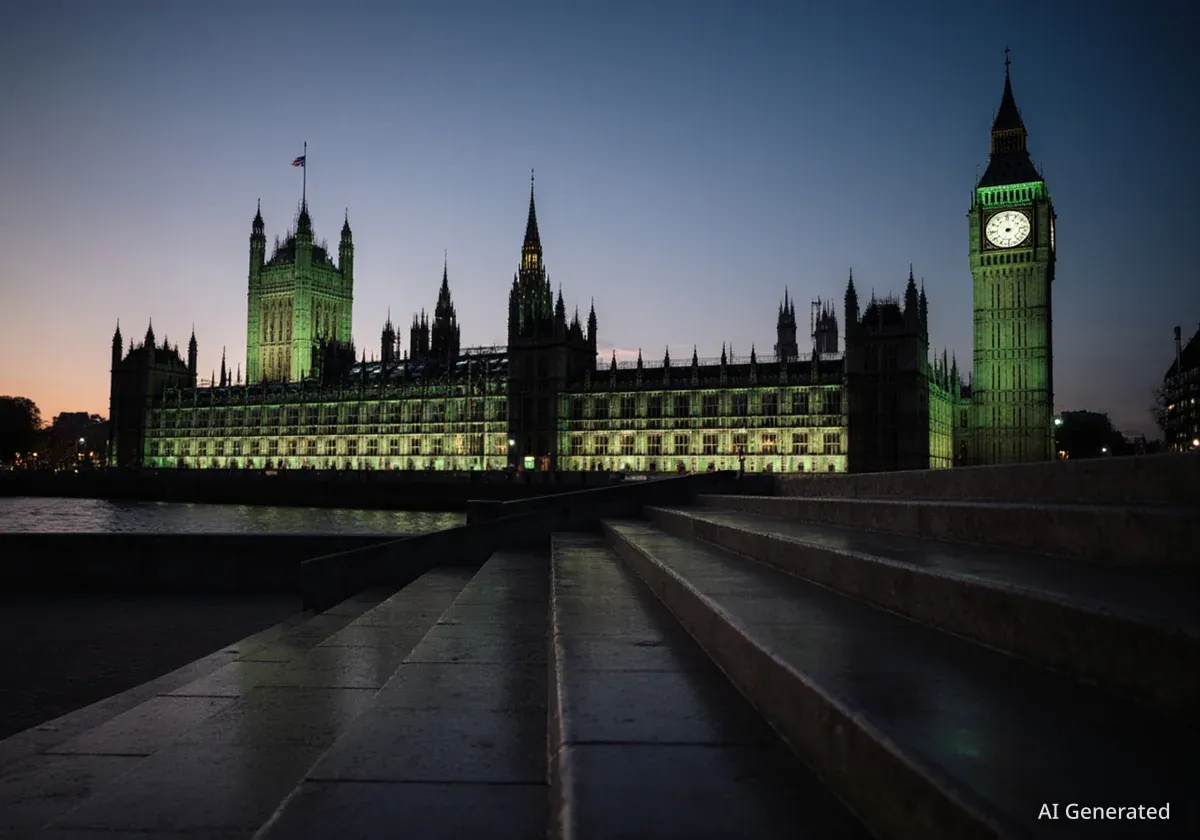Bern, Switzerland – The Swiss Federal Assembly concluded its Autumn Session 2025, held from September 8 to September 26. Key decisions and extensive debates in both the National Council and the Council of States shaped the legislative agenda, addressing issues from military spending to artificial intelligence regulation and the controversial 'marriage penalty' initiative.
Key Takeaways
- The Council of States rejected the 'marriage penalty' initiative, maintaining the current tax system.
- The President of the Council of States lifted the dress code's tie requirement.
- Debates on military funding saw the Council of States reject an additional billion Swiss francs for the army.
- The National Council advanced plans to regulate artificial intelligence and create 200 new jobs within the Federal Office for Police.
- Agreement was reached on new anti-money laundering rules for consultants.
Federal Assembly Addresses Key National Issues
The Autumn Session 2025 featured a full schedule of legislative work. Both chambers, the National Council and the Council of States, engaged in critical discussions and made important decisions impacting various sectors of Swiss society. The session provided a platform for lawmakers to address current challenges and set future policy directions.
Session Overview
The Federal Assembly convenes for several sessions each year. These sessions are crucial for the legislative process, allowing elected representatives to debate, amend, and vote on laws and initiatives. The Autumn Session is typically one of the longest and most intensive.
'Marriage Penalty' Initiative Rejected
One of the most anticipated decisions involved the 'marriage penalty' initiative. This initiative aimed to eliminate the tax disadvantage faced by married couples compared to cohabiting partners. After considerable debate, the Council of States ultimately voted against the initiative.
"The Council of States decided against the initiative, indicating a preference for maintaining the current tax structure related to family units," stated a parliamentary spokesperson.
The rejection means that the existing tax system, which some argue unfairly penalizes married couples, will remain in place. This outcome disappointed proponents of the initiative, who sought to rectify what they viewed as an unequal treatment under federal tax law. The debate highlighted ongoing discussions about fairness and equity within the Swiss tax framework.
Administrative Changes and Military Debates
Beyond major policy decisions, the session also saw some notable administrative adjustments and intense discussions on national defense. These elements underscore the diverse range of topics covered by the Federal Assembly.
Tie Requirement Lifted in Council of States
In a symbolic move, the President of the Council of States announced the lifting of the traditional tie requirement for members. This change reflects a modernizing approach to parliamentary decorum, though specific dress standards still apply. The decision was met with varied reactions, with some welcoming the relaxation and others viewing it as a minor, but unnecessary, alteration to tradition.
Did You Know?
The Swiss Federal Assembly consists of two chambers: the National Council (representing the people proportionally) and the Council of States (representing the cantons equally). Both chambers must approve a bill for it to become law.
Army Funding Debates
Discussions surrounding the national army's budget proved contentious. A proposal to allocate an additional billion Swiss francs for military expenditures, including procurement of new munitions and modernization programs, faced strong opposition in the Council of States. Ultimately, the Council of States rejected this further funding.
This rejection highlights ongoing tensions between different political factions regarding defense spending priorities. Advocates for increased funding argue it is essential for national security and modernizing equipment, citing geopolitical uncertainties. Opponents emphasize fiscal responsibility and alternative uses for public funds.
According to sources from the parliamentary session, the debate involved a "security policy showdown" between figures like Salzmann and Roth, indicating deep divisions on the optimal level of military investment. The National Council had previously shown a willingness to invest more heavily in defense, setting the stage for future discussions on this topic.
Future-Oriented Legislation and Federal Office Expansion
The session also focused on emerging technologies and strengthening federal law enforcement capabilities. These initiatives aim to prepare Switzerland for future challenges in areas like digital transformation and security.
Regulating Artificial Intelligence
The National Council took significant steps toward regulating artificial intelligence (AI). Lawmakers aim to establish a framework that fosters innovation while mitigating potential risks associated with AI technologies. This move positions Switzerland among countries proactively addressing the legal and ethical implications of AI.
The proposed regulations seek to balance economic opportunities with consumer protection and data privacy. Discussions centered on creating agile legislation that can adapt to rapid technological advancements. Experts believe this framework will be crucial for the responsible development and deployment of AI within Switzerland.
Federal Office for Police Expansion
In a move to bolster national security and law enforcement, the National Council approved plans to create 200 new jobs within the Federal Office for Police (fedpol). This expansion reflects a growing need for resources to combat cybercrime, terrorism, and other complex criminal activities.
The additional personnel will strengthen fedpol's operational capabilities and its ability to collaborate with cantonal and international partners. The decision underscores the government's commitment to enhancing internal security and adapting to evolving threats.
Financial Regulations and Session Conclusion
Finally, the Autumn Session addressed important financial regulatory matters and concluded its main deliberations, setting the stage for future parliamentary work.
Agreement on Money Laundering Rules
Lawmakers reached an agreement on new regulations concerning money laundering, specifically targeting consultants. These rules aim to enhance transparency and accountability within the consulting sector, preventing its misuse for illicit financial activities. The updated regulations align Switzerland with international standards for combating financial crime.
This consensus represents a significant step in Switzerland's ongoing efforts to maintain its reputation as a sound financial center while ensuring robust safeguards against illegal money flows. The new measures are expected to increase scrutiny on financial transactions handled by consultants.
The Autumn Session 2025 concluded its formal debates, with further deliberations scheduled for the next parliamentary sittings. The outcomes of this session will influence policy for the coming year, addressing critical national and international concerns. Journalists Manuel Imhasly and Nico Schwab provided live updates during the session, with information compiled from SRF and various news agencies.




